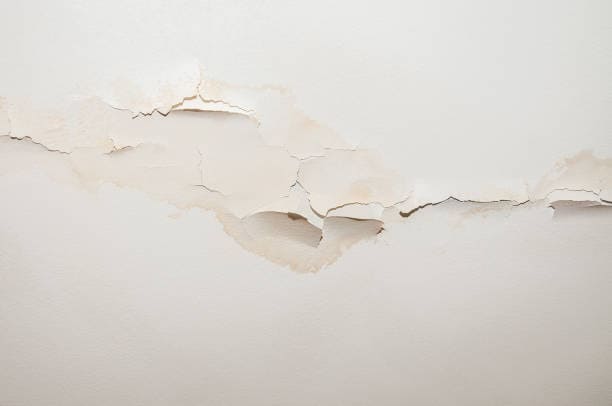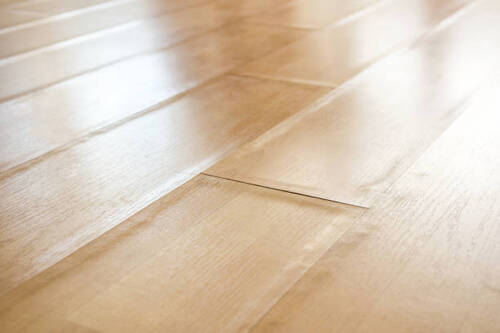Water damage of any kind is stressful and urgent. We understand. That’s why we won’t waste your time. We’re Cleaner Guys, a professional water damage restoration company with more than 20 years of experience. In this guide, we’re going to break down exactly who you need to call if you’ve suffered water damage, and much more!
The short version is, you should call:
- A plumber or a roofer
- Your insurance
- A water damage restoration company
But there’s a lot more to it than that! Read on for important details.
Table of Contents
- What is Water Damage?
- What Does Water Damage Look Like?
- Who Do You Call for Water Damage in Walls?
- Who Do You Call for Water Damage in Ceiling?
- Water Damage in an Apartment or Rented House
- Can You Fix Water Damage Yourself?
- How to Choose a Good Restoration Company
Q: What is Water Damage?
A: Water damage is harm or loss of materials due to exposure to large amounts of water. This guide focuses on water damage in buildings, including houses, apartments, and businesses. Water can soak into any porous material, including wood, drywall, insulation, textiles, and more. Therefore, water damage in buildings primarily consists of the intrusion of water into walls, ceilings, and floors of all types. Water damage is dangerous because it can cause not only structural weakening, but also mold growth, which will eat away at drywall and wood and cause mold sickness.
The first things you should do immediately after water damage are:
- Stop the source of water, if you can, by turning off the water shutoff valve.
- Begin soaking up the water with towels, blankets, or a wet vacuum.
- Call the people listed above and below — plumber, insurance, water damage restoration company.
Q: What Does Water Damage Look Like?
A: Water damage usually looks like brown or gray coffee-like stains on walls and ceilings, paint bubbling or cracking, swelling, and sometimes funky, gross odors near a certain wall. Walls and ceilings can also be soft and squishy to the touch. Water damage in engineered or real wood flooring looks like staining, cupping, bowing, and swelling. Water damage on carpet is usually obvious by a rank smell and squishy, wet areas.
You may observe any combination of these signs, not necessarily all of them. We will note, however, that if the only sign you notice is a musty odor in some area(s) of your property, that is a very strong sign that you have mold. Mold comes from moisture, which means there may be an undiscovered water damage problem as well.


Q: Who Do You Call for Water Damage in Walls?
A: When dealing with water damage in walls, you first call a plumber to fix the water source. Second, you should call your insurance company to make a claim (after taking photos of the damage!) Third, you call a water damage restoration company to fix the walls, ceilings, flooring, and more that the water damaged. Plumbers do not repair or replace water-damaged materials, and it’s not safe or advisable to try to do it yourself. A water damage restoration company is required.
There are some types of water damage that most insurance companies may NOT cover. Read our guide here to learn whether your water damage will likely be covered.
Q: Who Do You Call for Water Damage in Ceiling?
A: With water damage in ceilings, your first call should be to a plumber if the ceiling is not directly below your roof. If the ceiling is directly below the roof, access the attic and determine if the water is coming from broken plumbing, or from a leak in the roof. If the water is coming from the roof, call a roofer first, not a plumber.
Your second call should be to your insurance company, after taking photos of the damage and the source. Some kinds of damage are often not covered by insurance, so be sure to check our guide on insurance and water damage.
Your third call should be to a water damage restoration company, to restore your property from the damage.
Water Damage in an Apartment or Rented House
Dealing with water damage in an apartment or rented house is significantly different than in a house. The water damage may not be the tenant’s fault, it may have come from a different unit. Additionally, it is both the landlord’s and the tenant’s responsibility to keep an eye out for leaks and to communicate about them immediately if they occur.
If you’re an apartment or rental house tenant, we recommend you check out our full detailed guide on dealing with apartment water damage here.
If you’re a landlord, we recommend you check out our full guide for you on dealing with water damage in your properties.
Q: Can You Fix Water Damage Yourself?
A: In most cases, unfortunately, water damage inside your walls is not something you can fix yourself. This is because only the professionals have the training, techniques, and equipment required for successful restoration. It is unwise to attempt it yourself for most water damage.
There are 2 ways to restore water damage: dry it out, or replace it. Sometimes, the damage done by the water is minimal enough that the drywall can be safely dried out! But this requires professional equipment to accomplish. Replacing materials also requires training and expertise to be done correctly. Would you know if your water-damaged framing is load-bearing, and can’t be moved? Or what to do if you find mold inside the wall cavity? Water damage restoration experts know how to handle all this and more, safely and effectively.
How to Choose a Good Restoration Company
Choosing a good restoration company involves reading through reviews and looking for certain patterns, comparing company against company, and getting quotes from multiple companies. For many people, budget is the most important consideration, while for others, customer service is more important than anything! On top of that, not all companies are trustworthy, sadly, and you should know how to choose one you can trust.
For a much more detailed guide of the step-by-step process of choosing the right company for you, we recommend checking out this guide.
If you find yourself in the unfortunate position of needing a professional water damage restoration company in Western Washington State, consider Cleaner Guys as a high-quality, well-trusted option. We’re proud to boast award-winning customer service, lower prices than others, and top-notch workmanship! Contact us today through the menu at the top of your screen.

Disclaimer: This article is for informational purposes only. No part of this article is medical or legal advice, and may not be used as such. For all serious medical matters, consult your doctor. For all serious legal matters, consult your legal advisor. This article contains Cleaner Guys’ experience and opinions only.


